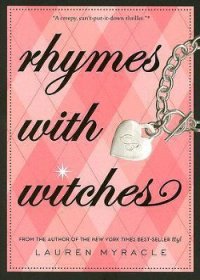The Silver Chair - Lewis Clive Staples (книги серия книги читать бесплатно полностью .TXT) 📗
“The question is,” came Puddleglum's voice out of the darkness ahead, “whether, taking one thing with another, it wouldn't be better to go back (if we can) and give the giants a treat at that feast of theirs, instead of losing our way in the guts of a hill where, ten to one, there's dragons and deep holes and gases and water and—Ow! Let go! Save yourselves. I'm—”
After that all happened quickly. There was a wild cry, a swishing, dusty, gravelly noise, a rattle of stones, and Jill found herself sliding, sliding, hopelessly sliding, and sliding quicker every moment down a slope that grew steeper every moment. It was not a smooth, firm slope, but a slope of small stones and rubbish. Even if you could have stood up, it would have been no use. Any bit of that slope you had put your foot on would have slid away from under you and carried you down with it. But Jill was more lying than standing. And the farther they all slid, the more they disturbed all the stones and earth, so that the general downward rush of everything (including themselves) got faster and louder and dustier and dirtier. From the sharp cries and swearing of the other two, Jill got the idea that many of the stones which she was dislodging were hitting Scrubb and Puddleglum pretty hard. And now she was going at a furious rate and felt sure she would be broken to bits at the bottom.
Yet somehow they weren't. They were a mass of bruises, and the wet sticky stuff on her face appeared to be blood. And such a mass of loose earth, shingle, and larger stones was piled up round her (and partly over her) that she couldn't get up. The darkness was so complete that it made no difference at all whether you had your eyes open or shut. There was no noise. And that was the very worst moment Jill had ever known in her life. Supposing she was alone: supposing the others... Then she heard movements around her. And presently all three, in shaken voices, were explaining that none of them seemed to have any broken bones.
“We can never get up that again,” said Scrubb's voice.
“And have you noticed how warm it is?” said the voice of Puddleglum. “That means we're a long way down. Might be nearly a mile.”
No one said anything. Some time later Puddleglum added:
“My tinder-box has gone.”
After another long pause Jill said, “I'm terribly thirsty.”
No one suggested doing anything. There was so obviously nothing to be done. For the moment, they did not feel it quite so badly as one might have expected; that was because they were so tired.
Long, long afterwards, without the slightest warning, an utterly strange voice spoke. They knew at once that it was not the one voice in the whole world for which each had secretly been hoping; the voice of Aslan. It was a dark, flat voice—almost, if you know what that means, a pitch-black voice. It said:
“What make you here, creatures of the Overworld?”
CHAPTER TEN.
TRAVELS WITHOUT THE SUN
“WHO's there?” shouted the three travellers.
“I am the Warden of the Marches of Underland, and with me stand a hundred Earthmen in arms,” came the reply. “Tell me quickly who you are and what is your errand in the Deep Realm?”
“We fell down by accident,” said Puddleglum, truthfully enough.
“Many fall down, and few return to the sunlit lands,” said the voice. “Make ready now to come with me to the Queen of the Deep Realm.”
“What does she want with us?” asked Scrubb cautiously.
“I do not know,” said the voice. “Her will is not to be questioned but obeyed.”
While he said these words there was a noise like a soft explosion and immediately a cold light, grey with a little blue in it, flooded the cavern. All hope that the speaker had been idly boasting when he spoke of his hundred armed followers died at once. Jill found herself blinking and staring at a dense crowd. They were of all sizes, from little gnomes barely a foot high to stately figures taller than men. All carried three-pronged spears in their hands, and all were dreadfully pale, and all stood as still as statues. Apart from that, they were very different; some had tails and others not, some wore great beards and others had very round, smooth faces, big as pumpkins. There were long, pointed noses, and long, soft noses like small trunks, and great blobby noses. Several had single horns in the middle of their foreheads. But in one respect they were all alike: every face in the whole hundred was as sad as a face could be. They were so sad that, after the first glance, Jill almost forgot to be afraid of them. She felt she would like to cheer them up.
“Well!” said Puddleglum, rubbing his hands. “This is just what I needed. If these chaps don't teach me to take a serious view of life, I don't know what will. Look at that fellow with the walrus moustache—or that one with the—”
“Get up,” said the leader of the Earthmen.
There was nothing else to be done. The three travellers scrambled to their feet and joined hands. One wanted the touch of a friend's hand at a moment like that. And the Earthmen came all round them, padding on large, soft feet, on which some had ten toes, some twelve, and others none.
“March,” said the Warden: and march they did.
The cold light came from a large ball on the top of a long pole, and the tallest of the gnomes carried this at the head of the procession. By its cheerless rays they could see that they were in a natural cavern; the walls and roof were knobbed, twisted, and gashed into a thousand fantastic shapes, and the stony floor sloped downward as they proceeded. It was worse for Jill than for the others, because she hated dark, underground places. And when, as they went on, the cave got lower and narrower, and when, at last, the light-bearer stood aside, and the gnomes, one by one, stooped down (all except the very smallest ones) and stepped into a little dark crack and disappeared, she felt she could bear it no longer.
“I can't go in there, I can't! I can't! I won't,” she panted. The Earthmen said nothing but they all lowered their spears and pointed them at her.
“Steady, Pole,” said Puddleglum. “Those big fellows wouldn't be crawling in there if it didn't get wider later on. And there's one thing about this underground work, we shan't get any rain.”
“Oh, you don't understand. I can't,” wailed Jill.
“Think how 1 felt on that cliff, Pole,” said Scrubb. “You go first, Puddleglum, and I'll come after her.”
“That's right,” said the Marsh-wiggle, getting down on his hands and knees. “You keep a grip of my heels, Pole, and Scrubb will hold on to yours. Then we'll all be comfortable.”
“Comfortable!” said Jill. But she got down and they crawled in on their elbows. It was a nasty place. You had to go flat on your face for what seemed like half an hour, though it may really have been only five minutes. It was hot. Jill felt she was being smothered. But at last a dim light showed ahead, the tunnel grew wider and higher, and they came out, hot, dirty, and shaken, into a cave so large that it scarcely seemed like a cave at all.
It was full of a dim, drowsy radiance, so that here they had no need of the Earthmen's strange lantern. The floor was soft with some kind of moss and out of this grew many strange shapes, branched and tall like trees, but flabby like mushrooms. They stood too far apart to make a forest; it was more like a park. The light (a greenish grey) seemed to come both from them and from the moss, and it was not strong enough to reach the roof of the cave, which must have been a long way overhead. Across the mild, soft, sleepy place they were now made to march. It was very sad, but with a quiet sort of sadness like soft music.
Here they passed dozens of strange animals lying on the turf, either dead or asleep, Jill could not tell which. These were mostly of a dragonish or bat-like sort; Puddleglum did not know what any of them were.



